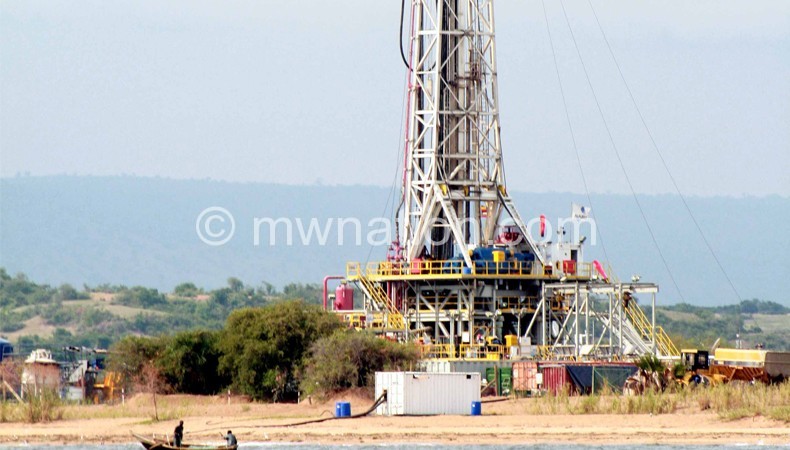Govt’s dithering may humper hope for oil
Mexico, according to the New York Times, launched the opening of its oil industry for the first time in 75 years to great fanfare.
At the time, oil earned around $100 (K45 000) a barrel. No wonder, every major oil company wanted to have a piece of the Mexican oil pie.
Mexico played hard to get—putting up a lot of tough conditions with the hope of attracting higher bids for exploration blocks and suck in more than $12 billion in investment a year.
But oil prices have plunged to less than half that level and the Mexican bride is no longer that attractive any more.
The sharp fall in prices has not only pushed producers to suspend multi-billion dollar ongoing projects, but also forced firms to call off the search for new oil and gas fields.
The so-called ‘Big Oil’, comprising BP plc, Chevron Corporation, ExxonMobil Corporation, Royal Dutch Shell plc and Total SA, have either delayed or cancelled multi-billion dollar projects across the globe as bottom lines take a knock from plunging oil prices.
Analysts estimate that at least a third of the industry’s projects—roughly $150 billion that were planned for this year—have been iced.
Among other domino effects, this has resulted in at least 100 000 job cuts and possibly years of missed exploration, development and production time for hopeful countries.
Yet, Malawi—with no oil history, let alone a reassuring investment climate—is sitting cross-legged on a pile of what it calls licence reviews.
Initially planned to take a month from November 2014 when the Ministry of Natural Resources, Energy and Mining suspended oil and gas exploration licenses, the reviews have now entered a fifth month.
The ministry’s secretary Ben Botolo said he was in a meeting on Thursday when Business News wanted to find out the progress on licences review.
But some of the companies Business News has talked to such as Rak Gas, Hamra Oil Holdings and Pacific and based on reviews of information that SacOil and Surestream have put out, say they did everything by the book.
Rak Gas—owned by the Government of Ras Al Khaimah, one of the emirates of the United Arab Emirates (UAE)—explains that it was awarded Blocks Four and Five after an international bidding participation.
It has since carried out Full Tensor Gravity Gradiometry (FTG) with all the processes duly approved by the Malawi Government.
Hamra—a Cayman Island Origin private company—says in buying 51 percent into Blocks Two and Three from Surestream, it entered into a Deed of Assignment that was duly approved and signed by the Ministry. Hamra too has carried out an FTG.
Pacific Oil, which is part of Vega Petroleum Limited—the privately-owned oil and gas entity that has oil producing and exploration concessions in Egypt—also says it was awarded Block Six after an international bidding participation.
The block encompasses Chikwawa and Nsanje; a contract area industry experts say is the riskiest of all the six blocks. Pacific is yet to carry out the FTG but, according to its licence, it still has the time to do so.
Capital Hill also says it wants to review Production Sharing Agreements (PSAs) it signed with companies.
But does it seek to renegotiate the current PSAs or it wants a different revenue deal altogether?
There are four major contract options in the oil and gas industry.
The first is where government opts for “royalties and income taxes”, which entail a share of the extracted hydrocarbons, entitled to the host State plus the income tax that a country charges on profits.
The second is the Technical Services Contracts (TSC), designed for producing fields and exploration areas within the proven petroleum basins with existing infrastructure and facilities.
Under the TSC, State-owned oil companies operate the blocks and the contractors participate as service providers for increasing the production in the blocks.
The third is the “R-factor”, which is the ratio of total receipts from the sale of petroleum to cumulative expenditures.
The fourth is the PSA, in which a company explores; extracts and develops the resource in return for a share of the production.
PSAs usually specify a portion of total production that can be retained by the contractor to cover costs; hence, it is called ‘cost oil’.
The remaining oil is called ‘profit oil’ and is divided between government and the contractor based on the agreed PSA formula.
The PSA is the method that Capital Hill chose, but interestingly, the current ones have nearly all the elements of royalties, equity, income taxes and even the R-factor, according to Capital Hill officials with knowledge of the oil and gas licenses.
Now, with dwindling oil prices influencing International Oil Companies (IOCs), why is government frustrating those it already has through protracted reviews?
Even better for Malawi, one of the licensed companies is Rak Gas—owned by the Emirate of Ras Al Khaimah.
This has two advantages: first, governments have a longer term view of investments, unlike private companies that only look at the bottom line and quickly freeze in the face of a tough business climate.
State-owned Rak Gas would be able to weather the storm, with the unlimited financial backing of the wealthy State.
Around the globe, when conditions of previously negotiated terms are changed unexpectedly, the IOC may claim force majeure, thereby creating a questionable condition on the block such that no other IOC can take it and potential reserves are locked away for many years.
Now that would be terrible for the country.







Too much politics playing the economy, from people who do not even know the economics of petroleum.